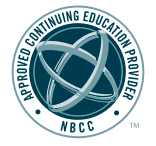A Resource for Healthcare and Social Services Professionals
June 29, 2022
11:00 am–12:00 pm ET
This training will provide the foundational knowledge regarding the disease of addiction and an introduction into treatment options utilizing medications for opioid use disorder.
Via Zoom
This training is appropriate for all health care organization staff, including non-clinicians. The training covers stigma, the disease model of addiction, and provides an overview of evidence-based treatment of substance use disorders.
Please note that you must have your camera on so we can see you in order to be eligible for CEUs.
Nurses, social workers, other clinical staff, and non-clinicians.
Andrea is a Nurse Practitioner and Clinical Educator for the OBAT TTA Program at Boston Medical Center with clinical interest and expertise in women's health, individuals experiencing homelessness, and chronic disease management. She is committed to serving vulnerable populations and works per diem at Boston Health Care for the Homeless Program; Andrea has also conducted international healthcare work in Haiti. She is a term lecturer and preceptor for nurse practitioner students at the MGH Institute of Health Professions (MGH IHP). Andrea received her Masters of Science in Nursing in 2011 and her Doctorate of Nursing Practice in 2018, both from the MGH IHP. She is board certified in addictions nursing through the Addictions Nursing Certification Board.
Kristin Wason, MSN, NP-C, CARNKristin is a Nurse Practitioner at Boston Medical Center and Assistant Professor of Medicine at Boston University School of Medicine. Kristin has been working in addiction medicine since 2009 — initially practicing as a Registered Nurse within BMC's multidisciplinary OBAT clinic, managing a large caseload of patients with substance addiction, and now as a Primary Care Provider with a full DATA2000 X-waiver. In addition to her clinical practice, Kristin advises and supports community health centers on integration of best practices for treating substance use disorders into institutions across Massachusetts and nationwide. Kristin earned her MSN, Adult-Gerontology Nurse Practitioner, degree from Salem State University. She is board certified in addictions nursing through the Addictions Nursing Certification Board.
After attending this training, participants will have the knowledge necessary to:
Boston Medical Center Grayken Center for Addiction TTA, Massachusetts Department of Public Health, Bureau of Substance Addiction Services (DPH/BSAS)
Funding for out of state attendees is provided by the Opioid Response Network (ORN).
Funding for this initiative was made possible (in part) by grant no. 1H79TI083343 from SAMHSA. The views expressed in written conference materials or publications and by speakers and moderators do not necessarily reflect the official policies of the Department of Health and Human Services; nor does mention of trade names, commercial practices, or organizations imply endorsement by the U.S. Government.
Boston University School of Medicine designates this live activity for a maximum of 1.00 AMA PRA Category 1 Credit(s)™. Physicians should claim only the credit commensurate with the extent of their participation in the activity.
Boston Medical Center grants 1.00 hours to all nurses who attend and complete the evaluation. Boston Medical Center is approved as a provider of nursing continuing professional development by American Nurses Association, Massachusetts, an accredited approver by the American Nurses Credentialing Center’s Commission on Accreditation.
The lecture has been approved by The Network of Professional Education at Boston University School of Social Work, accredited by the Commonwealth of Massachusetts Board of Social Work Registration, to provide 1.00 credit hours.
 BMC Grayken Center of Addiction TTA has been approved by NBCC as an Approved Continuing Education Provider, ACEP No. 7188. Programs that do not qualify for NBCC credit are clearly identified. BMC Grayken Center of Addiction TTA is solely responsible for all aspects of the programs. For this program, 1.00 contact hours will be offered to participants who attend the training and complete the evaluation.
BMC Grayken Center of Addiction TTA has been approved by NBCC as an Approved Continuing Education Provider, ACEP No. 7188. Programs that do not qualify for NBCC credit are clearly identified. BMC Grayken Center of Addiction TTA is solely responsible for all aspects of the programs. For this program, 1.00 contact hours will be offered to participants who attend the training and complete the evaluation.